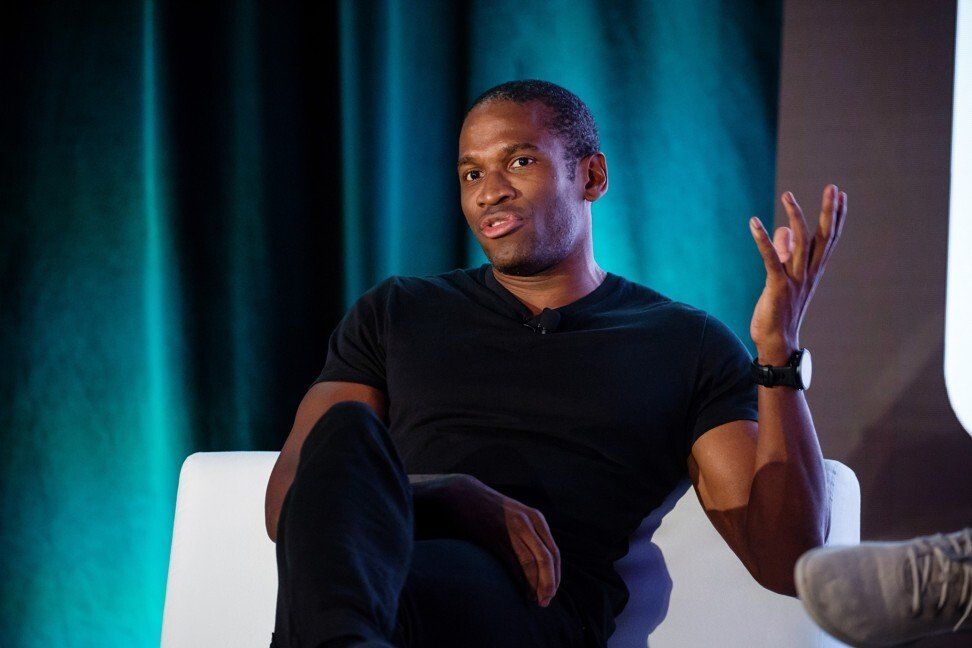
Push back on HK Government proposal to restrict cryptocurrency trading to rich people only (so they can get richer)
Hong Kong's Regulators are known all over the world as primitive, old fashioned bureaucrats who serve the financial establishment's monopoly against the interests of the people, and against the interests of Hong Kong's economy. An economy that was once - a long time ago - modern and innovative, but has become one of the most old-fashioned and primitive Fintech jurisdictions in the world.
Over the course of a decade, Hong Kong FinTech journey has become a joke: a frenzied series of bombastic promo events, touting amazing FinTech innovations with colorful power-points and outrageous hype, but with zero real progress on the ground. China is now leading the world with its amazing FinTech successes, while Hong Kong's practical implementation of FinTech has dropped much below that of Africa.
Impressively, China is continuing to innovate non-stop, launching the next generation of Fintech, which is far ahead of what the USA and the rest of the world is doing. While Hong Kong's legacy banks are still blocking their customers even from having dated 20-years old technology, like debit cards, and forcing them to use expensive credit cards only.
While 7 countries in Africa are already 100% cashless, the Hong Kong Regulator is blocking digital banking and payment platforms from getting full digital banking licenses - unless they are doing it in partnership with one of the big players in the local financial mafia.
Occasionally, here and there, there are determined entrepreneurs who have taken on the Mafia Banks and Regulators and somehow managed to survive the attempts to shut down their digital payment platforms. However, most of the innovative ventures and developers learned that it is better for them to run away and develop their innovations outside Hong Kong, preferably in modern Fintech jurisdictions such as Singapore, China and London.
Now, the enemies of the people are looking for ways to limit Hong Kong's bank customers from enjoying the latest success: Cryptocurrency.
Why? Well, the Devil will always find an excuse that sounds "proper" to conceal his bad intentions. Hong Kong Regulators have mastered this technique, and made it into a form of art.
A new proposal by Hong Kong’s government aims to ban retail investors from cryptocurrency trading in the city, at a time when digital assets are winning acceptance as mainstream forms of payment by the World Bank, JP Morgan, Elon Musk, US Federal Reserve, over 60 regulators in 60 countries and while market leader bitcoin is rising to a record level.
The HK Regulators are inspired by their domestic helpers, rather than by innovative China
Instead of getting inspired by China's innovative and super-modern Fintech successes - the Hong Kong Regulators somehow seem to take their inspiration from the Regulators in their domestic helpers' countries: Philippines, Indonesia and India (some of the very few countries that still see digital currency as a problem instead of a solution).
Back in November, the HKSAR’s Financial Services and the Treasury Bureau published the proposal that it will protect the traditional financial oligarchy from innovations, by restricting trading in cryptocurrencies to professional investors.
Following consultation with industry bodies and "members of the public" (that nobody in the public voted for) that ended in January, the government plans to turn the proposal into a bill and put it before the city’s Legislative Council later this year.
The "wide-ranging paper" (what do those bureaucrats do in life beside writing endless papers?) also includes a proposal to extend due diligence on politically-exposed persons to anywhere outside Hong Kong, bringing officials from mainland China into range amid an ongoing anti-corruption drive across the country.
So instead of addressing the real corruption issue that Hong Kong has suffered under for decades - the monopoly on property development - the government is making the corruption of others only...
If Hong Kong bans retail investors from trading cryptocurrencies, they will turn to unregulated platforms out of reach of the law, said industry body Global Digital Finance, which represents cryptocurrency exchanges BitMEX, Huobi, OKCoin, and Coinbase.
HKSAR Financial Services and the Treasury Bureau proposed in the consultation paper to widen the scope of the city’s anti-money-laundering and counter-terrorist financing ordinance to include crypto-exchanges, part of the government’s efforts to comply with recommendations by the Paris-based Financial Action Task Force (FATF).
However, Hong Kong’s proposal to limit cryptocurrency trading to professional investors goes further than many other jurisdictions.
“Restricting cryptocurrency trading to professional investors only is different to what we have seen in other jurisdictions such as Singapore, the UK, and the US, where retail investors can buy and sell virtual assets,” said Malcolm Wright, chair of Global Digital Finance’s Advisory Council which has led the industry response to the Hong Kong government. All three countries are also FATF members.
Hong Kong’s securities rules define an individual professional investor as having a portfolio of at least HK$8 million. A survey by Citibank released last September found that there were 504,000 “multi-millionaires” with net assets of at least HK$10 million (US$1.3 million), or 7 per cent of the SAR’s population in mid-2020. Using the survey as a rough proxy of professional investors, this means that cryptocurrency trading would become off-limits to about 93 per cent of the city’s population.
Globally, retail traders have swollen bitcoin’s trading volume since the cryptocurrency’s birth over a decade ago and helped push it to a record high above US$48,800 on Sunday. Its market capitalization is now more than double that of JPMorgan, the world’s largest bank.
Major cryptocurrencies are becoming mainstream methods of payment. Mastercard has recently said that it will start supporting select cryptocurrencies directly on its payment network later this year. Earlier this month, Tesla invested US$1.5 billion in bitcoin and signalled its intent to begin accepting the cryptocurrency as a form of payment.

Arthur Hayes, former chief executive officer of BitMEX.
If banned from trading on Hong Kong licensed exchanges, retail investors would trade on overseas exchanges, or trade on unlicensed platforms, said Wright, who joined 100x Group in October, the holding company behind derivatives exchange BitMEX, as its chief compliance officer. He declined to comment on whether BitMEX plans to apply for a licence.
Several of BitMEX’s founders, including former chief executive Arthur Hayes and former chief operating officer Benjamin Delo, were indicted last October in the US for violating the US Bank Secrecy Act, after being found guilty of willfully flouting AML requirements. BitMEX, which offers highly leveraged crypto-derivative contracts, has operations in Hong Kong.
Others, such as the Bitcoin Association of Hong Kong, argue that there needs to be more justification for why a resident’s dealing in bitcoin should be treated differently from other precious metals, or foreign currency.
“Any barrier put in place to restrict the sale or purchase of bitcoin needs to be reasonable and well justified. Individuals … need to be able to use and accept bitcoin as payment,” the Association wrote in response to the government.
Right and Wrong
Initiatives to prevent the financing of terrorism and drug-trafficking are absolutely necessary and should be welcomed.
Protecting uneducated investors from taking risks that they cannot afford is also important.
Preventing rich people from the Mainland from using Hong Kong's money-laundering services? Well, it sounds wonderful. But this would totally bankrupt Hong Kong. The minute Hong Kong Regulators stop supporting Chinese money-laundering by not doing their basic regulatory job: asking for and verifying proof of wealth from Chinese property buyers (cash smugglers, fake insurance buyers, etc.); and sharing the buying price with Chinese anti-corruption authorities, then the Hong Kong economy will collapse. In fact, for any mainlander who bought property in Hong Kong in the past 10 years, an honest (and brave) Regulator should scrutinise all the transactions retrospectively: Where did the money came from? How did they get it out of China? Start there, because this is the real big money-laundering that the Hong Kong Regulators have been supporting.
Nothing should limit ordinary people who are not rich (not yet having $8 million, ie, professional investors) from becoming rich by investing in the fastest value growth opportunity in the market, even if it’s a risk (and it certainly is, but investing in bubbles in HK's rigged stock market is no less of a risk anyway), as long as they are playing with their own money, and not with credit.
The retail investors might lose, of course. But that will be a cheaper and more effective lesson than the lessons they get taught in useless Economics classes, which are all out of date anyway.
But to restrict the opportunity for success because there is a risk?
Is there any other way to succeed than by taking risks, falling down, standing up again, and keep on walking, only smarter?
Let me tell you something that Western propaganda is hiding from you: the real reason for the Hong Kong Protest is not Democracy. We all know that Hong Kong under the Chinese (the HKSAR) was one of the countries with the most personal freedoms in the world, far above Canada, Australia, UK and USA (none of them are real democracies anyway).
The real reason for the social unrest in Hong Kong was and is that there are millions in a hopeless young generation who are held back by their useless education, with no chance to develop themselves in a monopolized market, unable ever to buy a home and become independent because of the Real Estate Mafia that controls Hong Kong.
At fault for this is not China - they are now a super-modern society and have successfully taken all their 600 million poor people out of poverty!
At fault are Hong Kong's traditional Mafias: the Real Estate, Banks and Bureaucrat Mafias. They are dragging Hong Kong's economy down and killing off Hong Kong's future for their own short-term gains.
Yes, make sure cryptocurrency is not abused by criminals - that's your job - but we the people know how to protect ourselves and do not need your chains and handcuffs to protect us from the freedom to strive for success.
We are the people. And you - the financial technocrats - are supposed to work for us, not for the oligarchs, monopolies and mafias in Hong Kong.
You cannot fight corruption by serving the corrupt. You are what is holding Hong Kong's economy and innovation back, not any democracy bullshit.
For 22 years, Hong Kong under China was, by its inherent nature, a vibrant and wonderfully free democracy, regardless of its rigged election system. But such obvious flaws provided a good excuse for the West to indulge in its fight against China's more successful economy, and had nothing to do with freedom. Before the protests began, Hong Kong had much more freedom and stability than any other country. Hong Kong lost these precious advantages because of the Regulators' power to apply limitations against the younger generation, which got used and abused by cynical foreign powers.

Hong Kong Regulators
Protecting the Mafia from Disruptive Innovation











